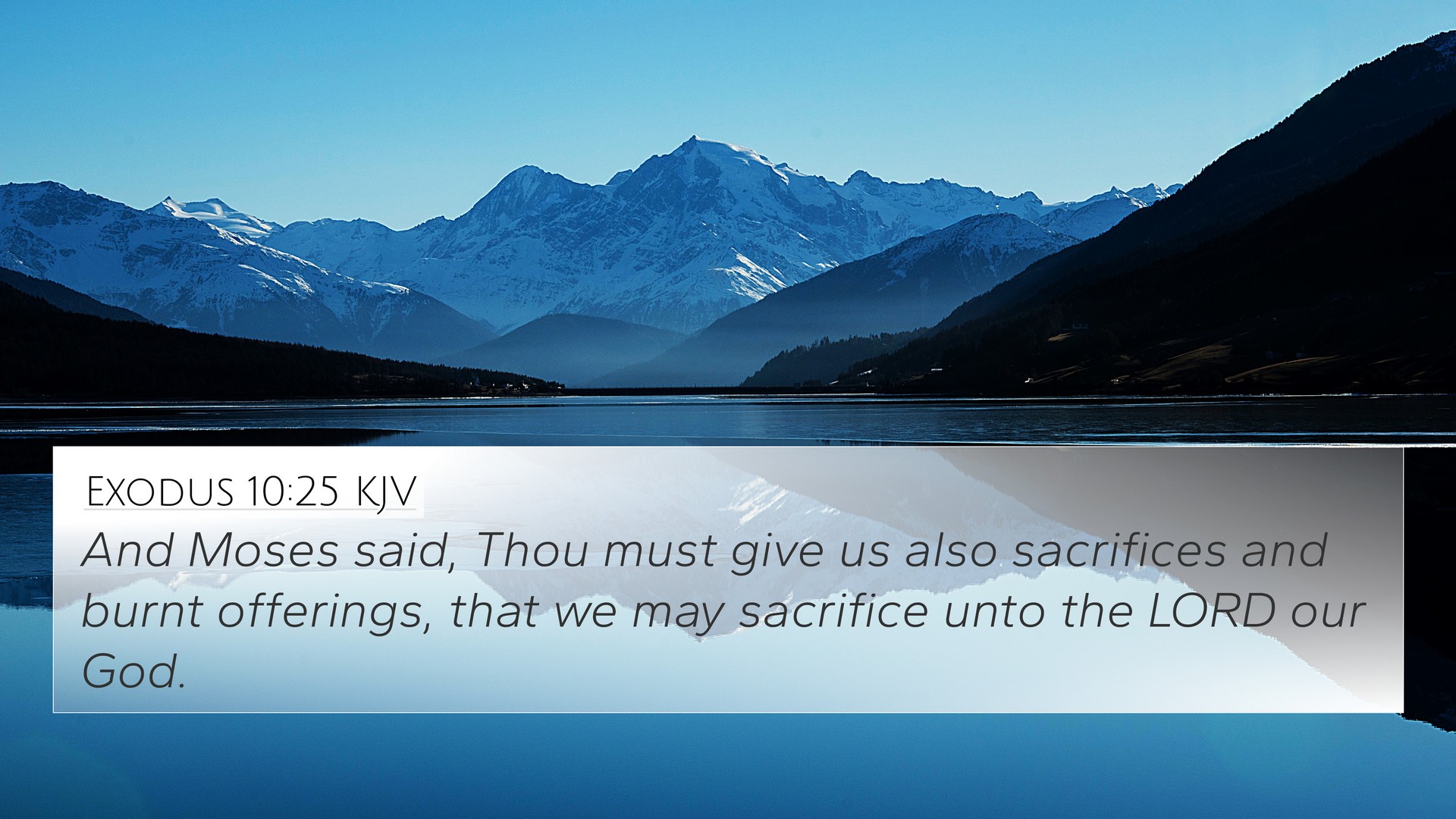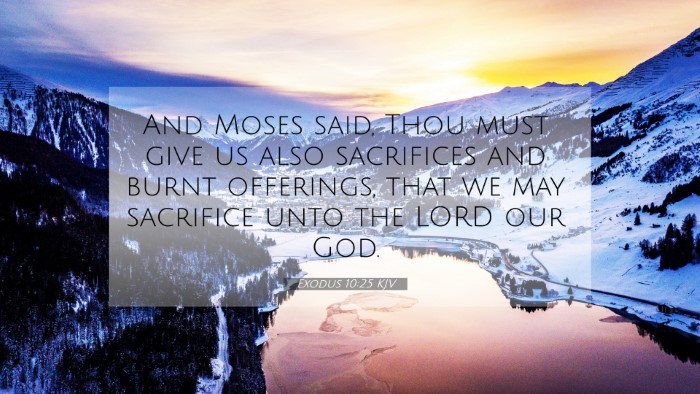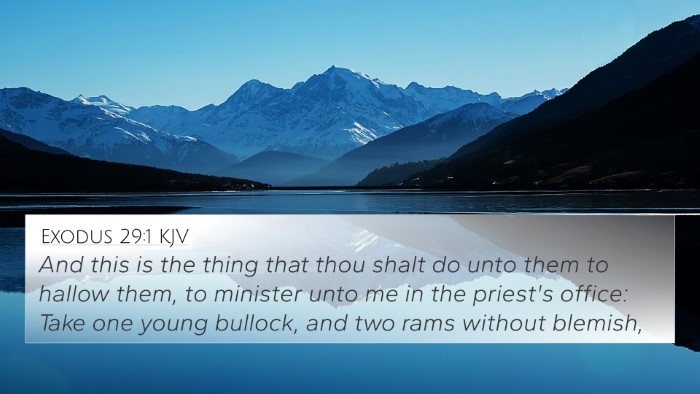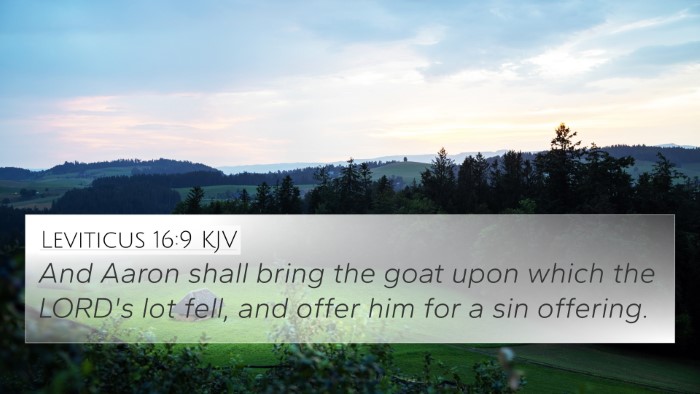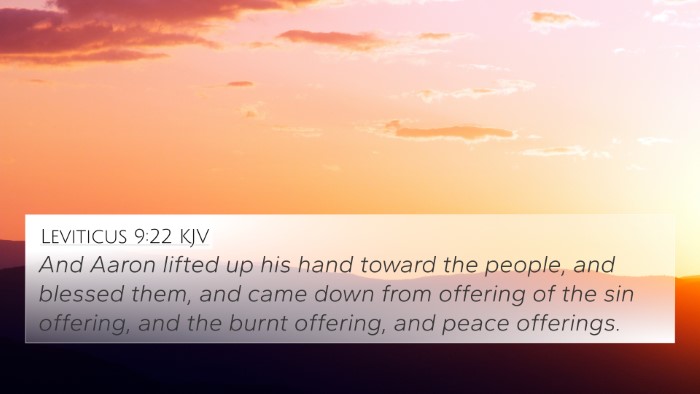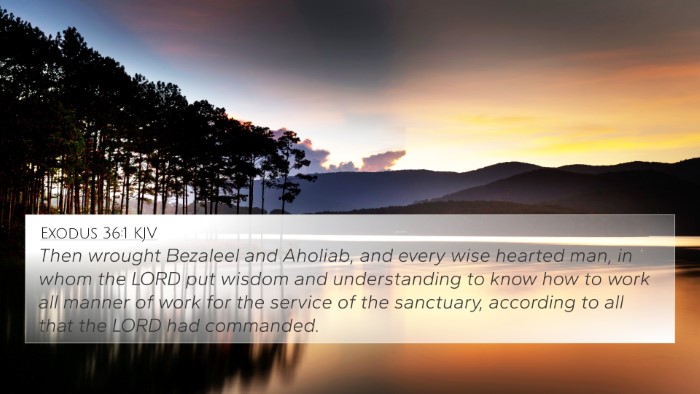Understanding Exodus 10:25
The verse Exodus 10:25 is part of the biblical narrative detailing the plagues of Egypt, specifically the final penalties imposed on Pharaoh and the Egyptians. Here, Moses speaks to Pharaoh about the demands God has made regarding the Israelites and their need to sacrifice to Him. This verse is pivotal in understanding the dynamics between divine command and human opposition, illustrating themes of authority, obedience, and the consequences of defiance against God.
Key Elements of Exodus 10:25
In this verse, Moses asserts:
- God’s Demands: Moses emphasizes that to properly worship God, the Israelites need to make offerings.
- Pharaoh's Resistance: The tension between Moses (as God’s messenger) and Pharaoh (as the earthly ruler) represents the struggle between divine authority and human pride.
- The Consequence of Disobedience: The plagues serve as indicators of the repercussions when one defies God’s commands.
Commentary Insights
Here are interpretations and insights from notable public domain commentaries:
- Matthew Henry: Henry highlights that Moses’s request reflects the necessity of proper worship. He emphasizes the role of sacrifices in being accepted by God.
- Albert Barnes: Barnes discusses the symbolic importance of sacrifices in worship and their relationship to sin and atonement. He points out that Pharaoh’s hard heart ultimately leads to severe consequences for himself and Egypt.
- Adam Clarke: Clarke notes the insistence of Moses on the proper practice of worship and suggests that it is crucial for the well-being of the Israelites. He views the offerings as a means of establishing a covenant relationship with God.
Cross-References for Deeper Understanding
This verse connects to several other biblical texts that provide a broader context and thematic relationship within scripture:
- Genesis 22:2: The significance of sacrifice in true worship is initiated from the Old Testament.
- Exodus 3:18: God commands Moses to request Pharaoh to let the Israelites go so they can hold a feast to Him.
- Exodus 12:27: The Passover, a significant ritual involving sacrifice, further illustrates the theme of obedience to God's command.
- Leviticus 1:3: The requirements for offerings detail the holy nature of sacrifices and their significance for atonement.
- Psalm 51:17: Points out the condition of the heart in worship and sacrifice, stressing that God desires a broken spirit.
- Matthew 5:23-24: Jesus speaks of the importance of reconciliation before presenting offerings, linking to heartfelt worship.
- Romans 12:1: Paul urges believers to offer their bodies as living sacrifices, showing the transformation of worship into a New Testament context.
Thematic Analysis
Exploring Exodus 10:25 through an inter-Biblical lens allows for a deeper understanding. The themes of obedience, sacrifice, and the recognition of God's authority are timeless and provide a comprehensive view of worship across both the Old and New Testaments.
Applications of Cross-Referencing
By understanding how these verses interconnect, readers can glean a richer insight into:
- How Old Testament sacrifices foreshadow New Testament themes of redemption through Christ.
- The implications of worship practices and how they shape the believer's relationship with God.
- The consistent message of God’s sovereignty and the required obedience from His followers.
- Examples of faithful response to divine commands as modeled through biblical characters like Moses.
Conclusion
Exodus 10:25 serves as a reminder of the fundamental aspects of worship as outlined in scripture, pointing towards the continuity of God's expectations throughout the Bible. For those studying the Bible, using tools such as a Bible concordance or engaging in cross-reference methods can provide a deeper understanding of these vast themes and connections.
Tools for Bible Cross-Referencing
To explore further, one might utilize:
- Cross-reference Bible study guides: Resources that outline thematic links between verses.
- Bible cross-reference systems: Tools that illustrate how different biblical texts relate to one another.
- Comprehensive Bible cross-reference materials: Frameworks providing more detailed exploration of interconnections.
Final Thoughts
In summary, Exodus 10:25 not only calls for reflection on God’s demands for worship but also teaches us about our own responsibilities in sacrificial living. Through an examination of this verse in light of other scriptures, we can appreciate the intricacies of biblical teachings and their application in our lives today.
